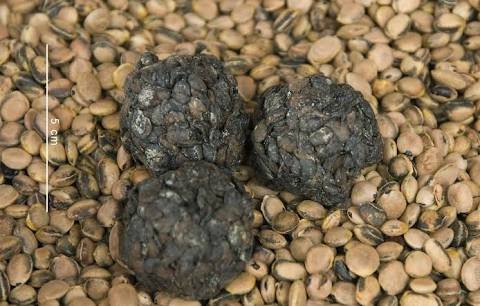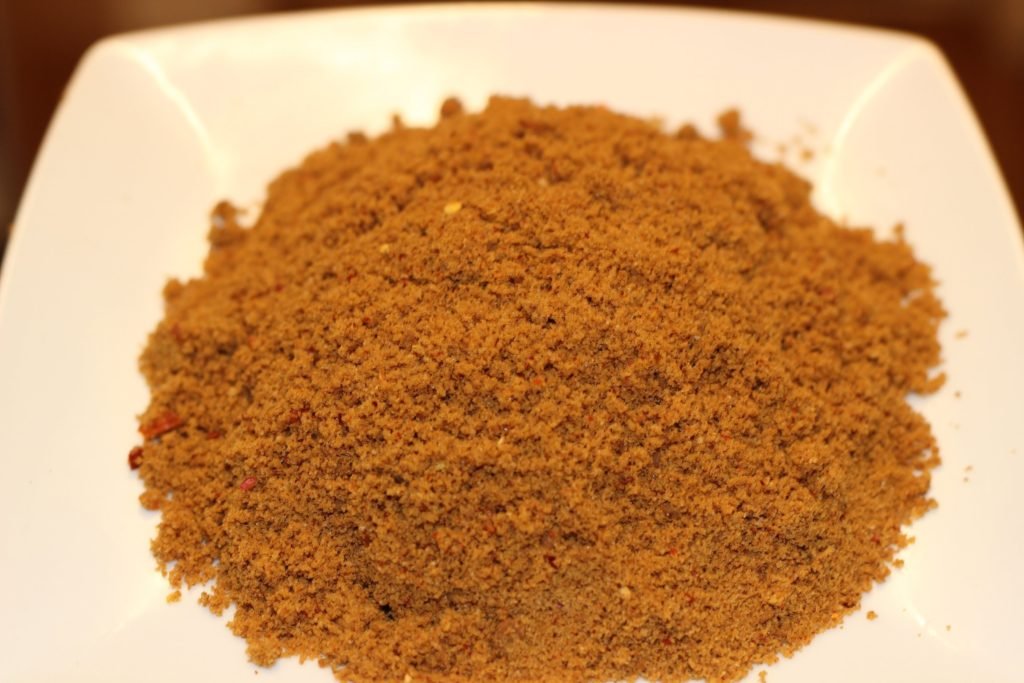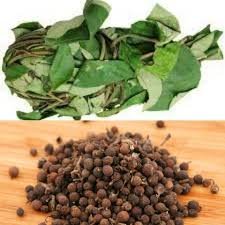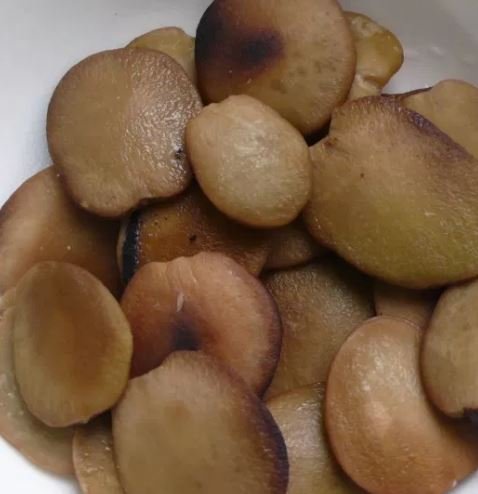Nigerians and Africans at large are known for their cultural diversity in every aspect. Especially in food. Africans take pride rather broad cooking skills since the days of our forefathers (or fore-mothers in this case). Local spices were more commonly used back in the days and from stories we’ve read and heard, the deliciousness of the food could not in fact be overemphasized. Local spices are still used among us today only that, there’s now limited knowledge concerning their uses and their nature.
I have done intense research to curate some of these spices and their uses because perhaps it will go a long way to broaden your knowledge on all this untapped goodness and use them to make more magic in the kitchen.
Iru/Okpeye/Dadawa:
Locust beans, commonly referred to as ‘Iru’ by the Yoruba, ‘Ogiri’ by the Igbos, and ‘Dadawa’ by the Hausas. Iru is commonly known for its distinctive, and to most people, unpleasant smell. It is a local seasoning or condiment used in soups and stews.
It is referred to as an African locust bean with the botanical name as Parkia biglobosa. It can be found in a wide range of environments in Africa and it is primarily grown for its pods that contain both a sweet pulp and valuable seeds. The seed is first cooked to remove the seed coat and then fermented.
There are two popular types of iru: iru woro and iru Pete. It can be used in making Egusi soup, Ofada stew, Ogbono soup, Efo riro, basically any soup. It is also the secret behind an amazing pot of local rice. Iru can be preserved in any way possible, soaked in water, salted, dried and refrigerated.
If you feel it has lost its pungent aroma, you can always soak it in hot water again before use. People preserve it in plantain or banana leaves because it is believed that it gives a unique taste and smell when in use.

Benefits
Locust bean, like most of the spices, is known to have some health benefits.
It is used to control diabetes and cholesterol levels.
It helps to promote good sight and aids digestion
It is used for treating stroke and hypertension
It is used in the management of bacterial infections
The locust bean contains tannins, which is often recommended for the treatment of diarrhea
It has a potential benefit for enhancing weight loss
Uziza Seed and Leaves
Uziza is a popular local spice mainly used in Nigerian dishes. It gives this hot slightly bitter aroma to the food. The spice is known to provide nutritional, culinary and medicinal benefits. It contains proteins, carbohydrates, alkaloids, steroids, glycosides, minerals, vitamins, and fat.
Benefits of Uziza
They can be used in the treatment of intestinal disorders like diarrhea, dysentery, indigestion, and cholera. Uziza leaves are aseptic in nature and are able to relieve flatulence.
It contains alkaloids, which are one of the most therapeutically efficient significant bioactive substances in plants. Alkaloids are used in CNS stimulant, powerful pain relievers, a topical anesthetic in ophthalmology.
In Igbo land, nursing mothers use Uziza to enhance uterine contraction for the expulsion of the placenta and other remains from the womb after birth. It helps the uterine muscles to return to their original shape.
Uziza seeds are also recommended for anti-inflammatory purposes. The seed contains large amounts of beta-caryophyllene which is an anti-inflammatory agent. Inflammation is a complex biological response of vascular tissues to harmful stimuli, such as pathogens, damaged cells, or irritants.
Ehuru
Ehuru is popularly known as African nutmeg. It is a seed used as a spice in African cooking. Often added to soups or stews. Ehuru comes in a hard shell that contains the seed which is grounded and the powder is added to traditional soups and dishes.
When cooking, bear in mind that Ehuru has a strong flavor so a little goes a long way, you want to add just enough to compliment the other flavors, not overpower them. It is rich in calcium, iron, potassium, vitamin-c, folic acid and many more anti-oxidants.
Benefits of Ehuru
Ehuru has been found by researchers to have myriad health benefits which include:
Weight loss
Blood pressure control
Kidney infections treatment
Relieve from headaches
Helps with insomnia
Increases libido
Reduces Cholesterol
Achi
Popular in the South of Nigeria. It is mostly used to thicken food and add flavor. The spicy seeds are consumed like condiments, used in the preparation of flour.
Benefits of Achi
Anti-inflammatory
Medicinal and nutritional values of the plant
Minerals and Vitamin packed
Analgesic
Anti-microbial
Wound healing
Anti-cancer
Lowers blood glucose
Bowel movement
Diabetes and cholesterol aid
Yaji
Yaji is a spice made from red chili pepper, salt, ground black pepper, and even ginger. What is added into it is dependent on preference. It is most popular in the North. It has been part of the culture, particularly when eating street food such as kosai/Akara, suya, awara and even in jollof rice and beans.
What you need for your yaji as said earlier depends on what you like but the main ingredient is red chili pepper. The health benefit of Yaji largely depends on the ingredients used to make it. Some people use ginger and garlic so there’s no particular benefit.

Nchanwu/Ahunji
Nchanwu as our Igbo people call it is also known as scent leaf. It is a homegrown shrub used mainly as spices for cooking delicacies due to its unique aromatic taste. The plant has clusters of flowers with fragrant leaves that have a serrated margin.

The Ibibio call it Ntonng, Yorubas call it Efinrin, Hausas call it Daidoya. The use of this leave as a herbal medicine has played and continues to play a prominent role in the treatment of certain ailments and diseases.
Now that we can see the nutritional values of some of these spices, it is encouraged that we go back to using these spices more rather than falling back to processed spices.




